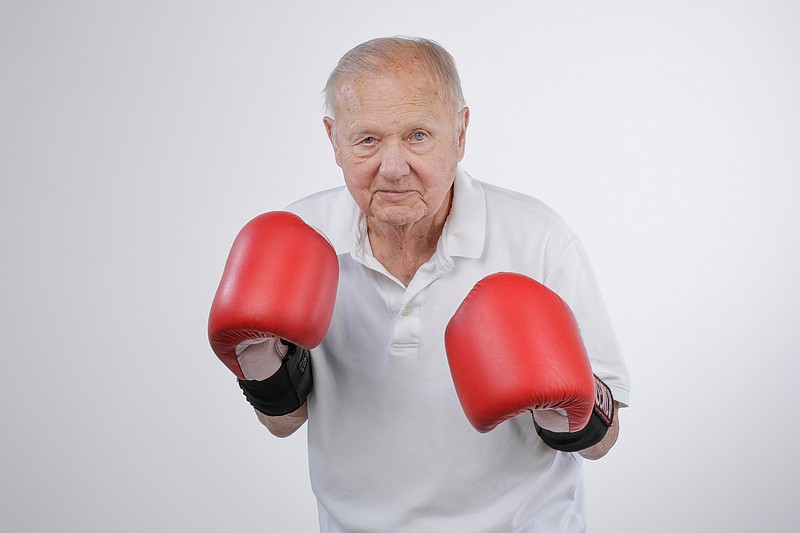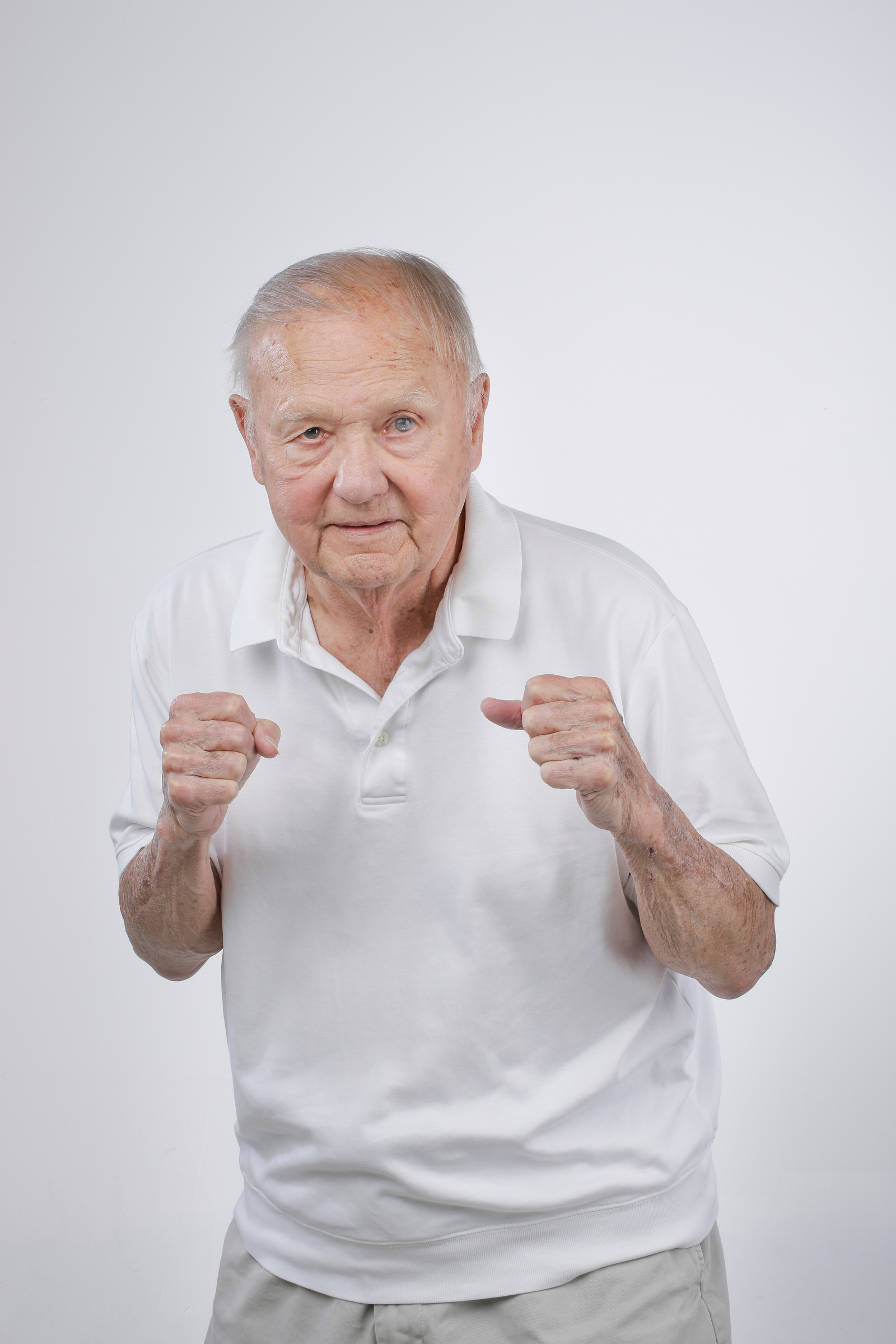Name: Skipper Fairbanks
Age: 83
Hometown: Red Bank, Tennessee
Occupation: Coach at Red Bank Boxing Club
At age 83, Skipper Fairbanks has had eight back surgeries and one heart surgery, but like any good boxer, he's not yet down for the count.
Red Bank Boxing Club
640 Morrison Springs Rd. The club's free training sessions takes place on Tuesdays and Thursdays from 4:30-6:30 p.m. during the summer months. Only those ages 8 and up will be eligible to participate when boxing season begins in the fall, but anyone is welcome to join and work out whether they plan to compete or not.
As a boxing coach for 62 years, the five-time Chattanooga Golden Gloves champion has been passing down his knowledge of the sport to the next generation of amateur fighters, ages 8 and up.
But he is not just teaching his trainees proper footwork and defensive techniques from the Red Bank Boxing Club facility on Morrison Springs Road. With each blow and each loss, the coach is also teaching local kids, teens and adults something far more valuable: how to persevere.
» I fought eight years. I started when I was 13.
» Back then, boxing was the big sport in Chattanooga. All the high schools had teams in the Golden Gloves. Matter of fact, I've got a picture that showed the vestibule of Memorial Auditorium packed. They had sold out and the fire marshal wouldn't let anybody else in. That's how big of a sport it was back in the '50s and '60s.
» Four or five of us decided to go down to the Frye Institute where the boxers trained but I was the only one that stayed and fought in the Golden Gloves that year.
» I didn't have a coach at that time, so I watched what the older guys were doing [to train].
» When I was 11, my uncle would box with me, and he knocked me off the front porch. [laughs] I got up and came back at him, so he encouraged me to box instead of crying or anything.
» I was extremely nervous until I got in the ring. I tell the boxers I coach now if they say they're not nervous that they're not telling the truth. 'Cause I was just as nervous the last bout that I had as I was the first. And once you get in the ring, you better start thinking about the person in the other corner, or else you're gonna be in trouble. [laughs]» I won that year, and the next year I went to Red Bank Junior High and fought under Marion Perkins. He didn't teach slugging; he taught boxing. There's a big difference in a person who just goes out there and starts swinging. And that's what we teach our boxers [at Red Bank Boxing Club] now.
» For years, I got in the ring and sparred with the boxers; the best way to coach boxing is to box with them and correct them as you go. But I got to where I couldn't do that.
» While I was a federal probation officer, I had to be in court a lot. I remember one day, I stood up to say something to the court, and [the judge] looked over his glasses at me. My nose was skinned all the way down, and my eye was black. [laughs] So I quit doing glove work. I looked like I'd been in a brawl!
» Now, I spend most of my time actually coaching and watching the boxers hit the bag and correcting them.
» While we're interested in their boxing, the lessons we hope for them to learn are hard work and discipline and sportsmanship. It's more important than the sport itself.
» While I was a federal probation officer for 28 and a half years, we only had five people appear in federal court that had been in athletics. And there was no telling how many [cases] I did. Now that's not saying that if you play sports you won't be in trouble, but it's a pretty good lesson.
» Sometimes a boxer will box, and if he loses, he won't come back. We tell our kids that the second time they get in the ring, they're growing up whether they win or lose, because they didn't quit. They came back.
» We're hoping they will take those lessons with them. And if they run across a difficult problem as an adult, then they can acquaint that with the fact that they've had a hard time before in a sport, and they can draw on that comparison and that lesson.
» I love boxing but it's not my favorite sport. Football is. I played four years at Red Bank, and I coached right out of high school under Bill Edwards. I was [also] head football coach at Bridgeport High School in Bridgeport, Alabama. We had an undefeated season.
» I officiated high school football for 42 years. That 42nd year, I got run over from behind by two great big tackles during a football game. They just plowed over me. I think that led to me starting to have back troubles.
» When I started having back surgeries, that ended my officiating, and eventually ended my coaching and my teaching [career at Red Bank High School]. It eliminated all those things that I love doing.
» That was one of the difficult times, trying to overcome surgeries. But I didn't just sit down. I've been through hard work before. I had a very hard coach that worked us and taught us hard work and discipline.
» I had heart surgery eight years ago. I read that a person who sits down and doesn't do rehab, they'll die within three years if they just sit down and don't do anything at all. Now that may not be the case for everybody, but they didn't have to encourage me to go to rehab. I ran there. [laughs]
» I still work out three days a week. Try to stay in shape. I do vertical rowing machine and the leg press. I do 45 push-ups, then do 10-pound barbells and wall slides.
» I just do the best I can. You get knocked down, you get back up.

